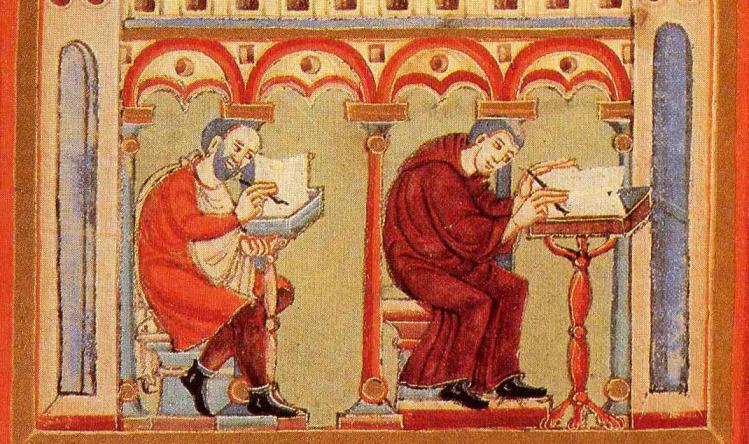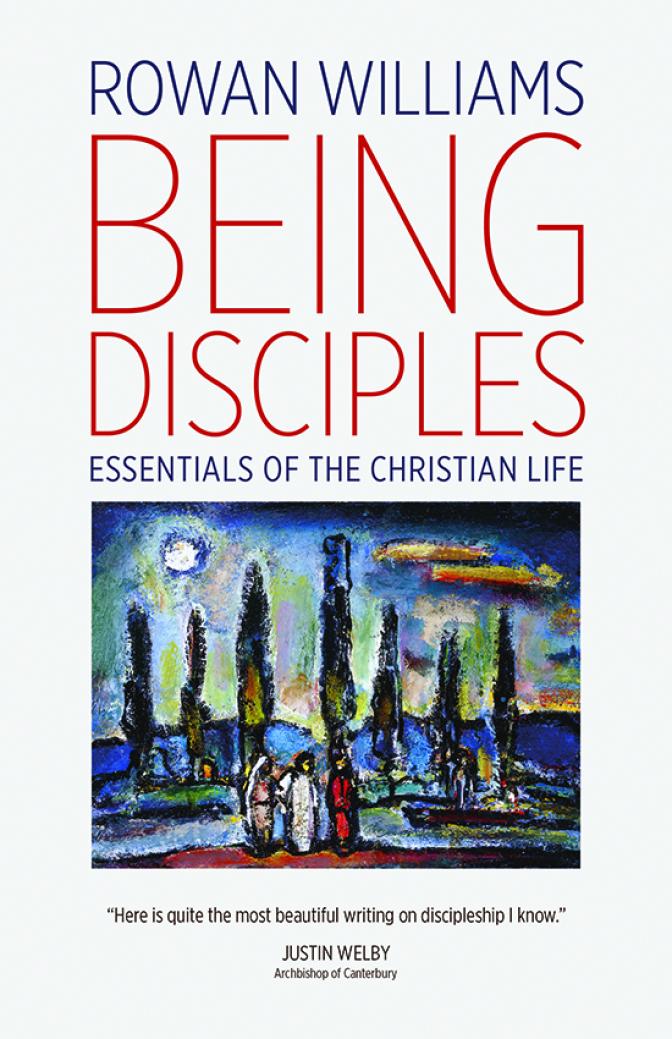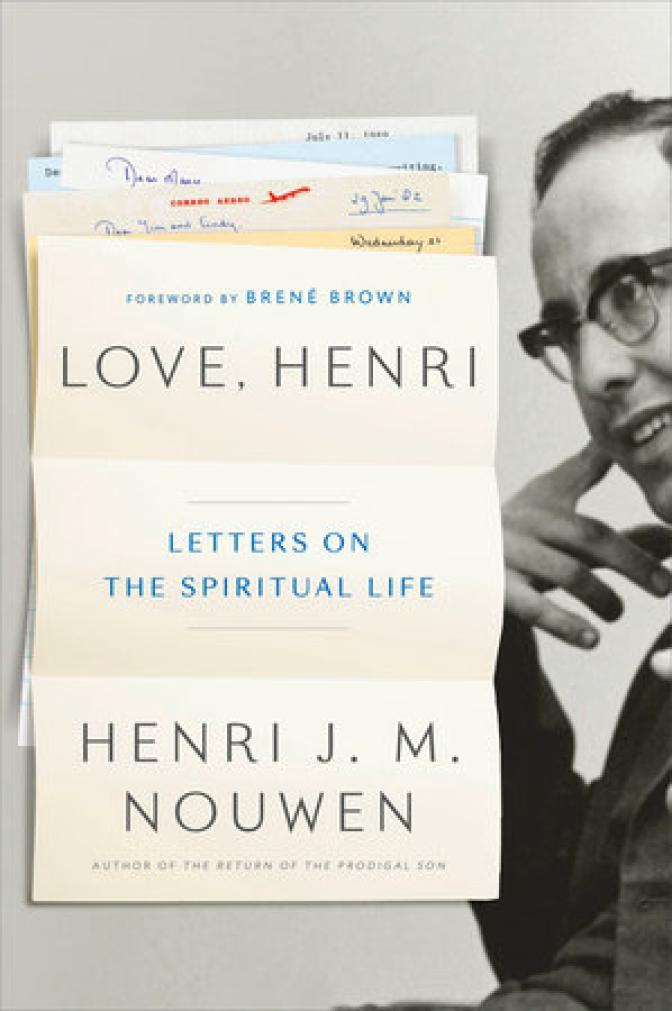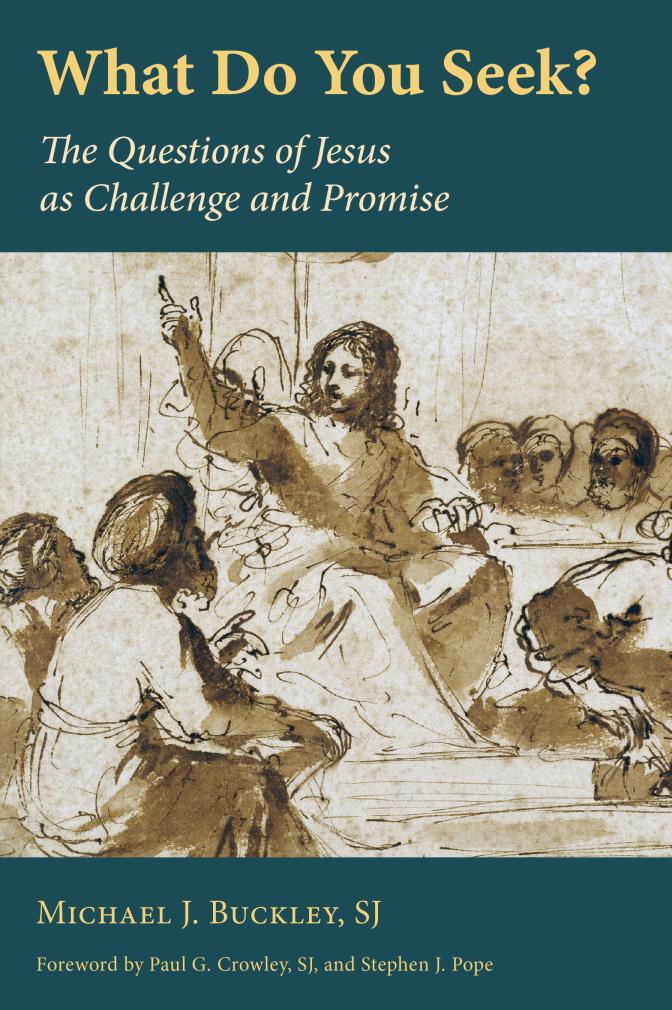
Looking back at my first six installments of Religion Booknotes, I discover that I have mostly paid attention to scholarly books. And I confess to a taste for the obscure: microhistories of nuns and recoveries of lost cities exercise a perhaps unhealthy attraction for me. But in the boxes of books the editors periodically send me—from which I choose some to review—there are always a number that are not so much about religion as they are expressions of religion.
A more precise description or designation is hard to find: works of spirituality? Of piety? Of instruction or correction? Of devotion? Of edification? Whatever the label, such books are less directed to the academy than to readers for whom religion matters existentially. It is possible, I realize, perhaps even probable that many readers of Commonweal would be better pleased at learning of a truly useful work of edification, than at hearing about another academic or ecclesial tempest in a teapot. Like more scholarly works, however, books that speak directly to believers about their faith also vary widely in worth. Trying hard to resist my natural inclinations, then, and to provide at least a modicum of balance, I devote this column to a handful of recent examples.

Faith beyond Belief
Spirituality for Our Times
David Steindl-Rast and Anselm Gruen
Liturgical Press, $17.95, 177 pp.
Two elderly Benedictine monks respond to a series of questions on the spiritual life put to them by the Austrian broadcaster Johannes Kaup. Both monks are already well known for their books on spirituality. After a brief foreword by Martin Marty and a prologue by Kaup, the question-response format gives equal voice to both Gruen and Steindl-Rast; the book concludes with helpful notes providing information on the unexpectedly frequent allusions to ancient and modern authorities made by each of the participants.
Is this meant to be a continuation of the tradition established by the ancient Sayings of the Fathers, in which desert monks provided pithy advice for spiritual seekers? Is Kaup a twenty-first-century Palladius? Perhaps that was the idea behind a well-known journalist approaching monks who have a reputation as spiritual guides, seeking a “spirituality for our times.” If so, the results are unimpressive.
The format itself is partly to blame: neither teacher is given room to develop his thought fully; creating the illusion of a casual conversation comes at the expense of coherence. And Kaup’s questions do not help: they bounce from personal identity to political activism, from correcting pre–Second Vatican Council attitudes to the advocacy of his own positions—the respondents are overly defined by his leading, and not well-coordinated, questions. A few sample headings: “Ego, Fear, and Nothingness, or: the Epic Discovery of Self” and “Dead Man Rising, or: Jesus Christ and the Buddha” and “Sin and Evil, or: Why We Are Mired in Guilt.”
The reader finds in these pages mostly a mish-mash of “spiritual” elements that mixes depth psychology, Nietzsche, Buddhism, and the “I’m OK, You’re OK” optimism of self-help books, with only an occasional touch of what is distinctively Christian. The title Faith beyond Belief captures the viewpoint nicely: belief stands for the narrow confines of doctrine that separate humans, while faith represents the world-embracing openness to the mystery summoning all humans.
Missing entirely in this artificial conversation is an understanding of spirituality as engagement with the Holy Spirit of God and transformation into the image of Christ through the practices of asceticism and prayer taught by the saints. Apparently, “spirituality for our times” is mainly a matter of conceptual clarification and psychic self-grooming. This small book offers little to readers seeking something more than another collection of rapidly dating opinions.

Being Disciples
Essentials of Christian Life
Rowan Williams
Eerdmans, $10, 96 pp.
In Rowan Williams’s 2014 bestseller, Being Christian, the former archbishop of Canterbury laid out in straightforward fashion what he considered the four essential elements holding Christians together: Baptism, Eucharist, Bible, and Prayer. This companion volume follows the same format, consisting of six short and accessible chapters originally delivered as oral presentations, followed by discussion questions. What distinguishes this set of reflections is its focus on the actual living out of Christian identity, that is, being (and becoming) disciples. Although the subjects treated are familiar enough (e.g., the theological virtues, forgiveness, holiness, life in the Spirit) each is given a fresh and appealing interpretation. The format and content alike make this book perfect for faith-sharing groups of whatever level of sophistication.
Williams meets reader expectations in matters of presentation. He writes with artful simplicity, his prose both beautiful and lucid. Writing for a “popular” audience while avoiding condescension is not easy, but Williams gifts his readers with language that provides no hint of the formidable learning that supports it. The same is true of his way of engaging Scripture or the writing of saints of the past: he moves easily in and around the New Testament without being hobbled by academic self-consciousness; and when he refers to Teresa of Avila or John of the Cross or Gregory of Nyssa, he uses them as fellow-examiners of a shared faith rather than as research projects.
Although Williams gets high points for style, the truly impressive thing about this small book is the way he lightly touches and illuminates difficult topics that are so often made more difficult by ponderous theologizing. In his discussion of holiness, he captures beautifully the critical distinction between saintly posturing and the following of Christ into the heart of human suffering; in his treatment of life in the Spirit, he categorically rejects “spirituality” as psychological self-nurture: “‘Spirituality’ for the Christian is shorthand for ‘life in the Spirit,’ for staying alive in Christ,” and he deftly sketches the sort of prayer life that corresponds with this understanding. Most impressive is his treatment of “Faith in Society,” which lays out what amounts to a Christian polity within secular society based on two theological convictions: “we are each of equal value to God,” and “we are all dependent on each other.” Stated in isolation, the two principles can appear simplistic, but Williams’s way of reaching them is not. In a time of cultural and political confusion and division, in fact, Williams’s words are both reassuring and challenging
Henri J. M. Nouwen
Love, Henri: Letters on the Spiritual Life
Edited by Gabrielle Earnshaw
Convergent Books, $24, 345 pp.

This is the first of what promises to be a long stream of letters and other personal papers from the Nouwen estate. During his peripatetic life, Henri Nouwen was a prolific author, at his death having written thirty-nine books and hundreds of articles. Although he was almost constantly on the move, he was also constantly in communication with an ever-growing network of correspondents. He received some sixteen thousand letters, answered virtually all of them, and saved them! The present collection of two-hundred-plus letters, “on the spiritual life,” is introduced, edited, and deftly annotated by Gabrielle Earnshaw, the curator of the Nouwen archives. The letters appear chronologically, beginning in 1973 when Nouwen was a professor at Yale Divinity School, and ending in 1996, shortly before his sudden death at sixty-four.
The letters confirm aspects of Nouwen’s charismatic personality that most readers already knew or suspected: his restless search for a place that would at once make use of his distinctive gifts and at the same time offer him the personal and spiritual support he longed for; his discomfort with the disconnect between how others saw him (thus, the academic positions at Notre Dame, Yale, and Harvard) and his own sense of vocation (thus, his ultimate commitment to living with the little ones of L’ Arche); his uncanny ability to start and then continue meaningful friendships in all the places his journey took him; his struggle with his own deep longing for intimacy that shadowed some of these same friendships; his willingness to display for the sake of others his vulnerability to hurt and rejection; his fidelity to his ministry as a priest and to the church.
What these letters provide is a sense of how Nouwen himself perceived all these dimensions as they were unfolding in real time. Regarding the shift from academia, he wrote in late 1985 to a former colleague at Notre Dame: “Now I am working with mentally handicapped people! Notre Dame, Yale, and Harvard now seem like a long complex route to reach the poor in spirit. I do not regret any part of it. God has been very very good to me.” Regarding his serious emotional breakdown in 1987, he writes to a young man suffering anxiety in August 1990: “You are right when you say that I have gone through a lot myself, but I also want you to know that God has given me an immense amount of joy in my life, and he wants to give you the same.” Regarding troubles in the church, he comments on a book in March 1990: “I miss a spirit of joy and peace in the midst of all the conflicts that are really there, and I am quite overwhelmed by the heavy-handed generalizations with which they speak about the church and the life of the Spirit.”
Perhaps most impressive is the way these letters reveal how direct, clear, and traditional Henri Nouwen was as a spiritual advisor. He does not pussyfoot around with psychological jargon. His training in clinical pastoral education is long past. If he speaks of emotional conditions, it is as one who knows first-hand what they are. But he does not identify the spiritual life with psychic tranquility. He knows it is identification with the suffering of Christ. He does not recommend ways to get better but the way of the cross. The letters are at once profoundly evangelical and steeped in the traditions of classical spirituality.
Writing to a Dutch woman in September 1995, for example, he recommends reading the daily gospel lection, “and simply look with your inner eye at what the story presents. Thus, Jesus can become your companion on your journey.” He urges her to connect her suffering with that of Jesus, so that “you also connect your suffering with the suffering of the whole world. Because Jesus carries the pain of all humanity in his heart.” As for his own prayer, “My own prayer life is quite simple. I simply look at Jesus, and say, ‘Lord, Jesus Christ, have mercy on me’…when you say that simple prayer often and from your heart, many graces will come to you.”
The letters support, and in no way detract from, the conviction of many readers—as his many friends—that Henri Nouwen is at once a deeply human and profoundly reliable companion on the journey to God.

What Do you Seek?
The Questions of Jesus as Challenge and Response
Michael J. Buckley, SJ
Eerdmans, $18, 146 pp.
Fr. Buckley helps put to rest the canard that academic theologians cannot speak simply and powerfully out of their own faith and to the questioning faith of others. He is the Bea Professor of Theology Emeritus at Santa Clara University, and over a long academic career has produced a substantial body of scholarship, including At the Origins of Modern Atheism (1987). The present set of reflections, though, is based on retreat conferences that he gave to religious men and women, and they retain some of the freshness and directness of oral delivery. Indeed, his prose rewards slow reading out loud.
In his introduction, Buckley acknowledges how theological language is always in danger of ossification: “Is there any way in which the language about God, about religious experience before God, language from the gospels themselves, can maintain its inherent vitality, can continue to convey life and human urgency?” He proposes that such vitalization of language can be found through engaging the questions posed by Jesus in the gospels, questions that “probe for meaning,” that challenge thought and self-examination, that, like parables, “disturb the mind into active thought and recognition—or, more profoundly, into prayer and the consciousness and call of God.” The remainder of the book, then, takes up fourteen questions posed by Jesus to his followers in the Gospel of John. Each question is taken as a challenge to self-examination.
Buckley cannot hide his wide learning completely. His literary references range from Aeschylus through Hopkins to Eliot. Among saints and mystics, he makes use of Ambrose, Augustine, and Thomas, as well as of Benedict, Ignatius, John of the Cross, and Thomas à Kempis. He has also done his homework on the Fourth Gospel, citing Bultmann and Brown and Schnackenburg in the appropriate places. But these authorities never replace his own voice; they assist rather than intrude. Theologically, these conferences manage to persuasively combine an emphasis on the importance of human experience with an even greater emphasis on God’s sovereignty: God seeks us before we seek God. Likewise, Buckley links love of God and love of neighbor in a compelling way, combining what is best in traditional piety with what is best in a passion for social justice.
Another authority Buckley approvingly quotes is Karl Rahner, and this little book reminds me most of that earlier Jesuit’s classic, Encounters with Silence. It does not have the same format of prayer, but it has the same virtue of distilled wisdom, showing that theology has everything to do with real life.
